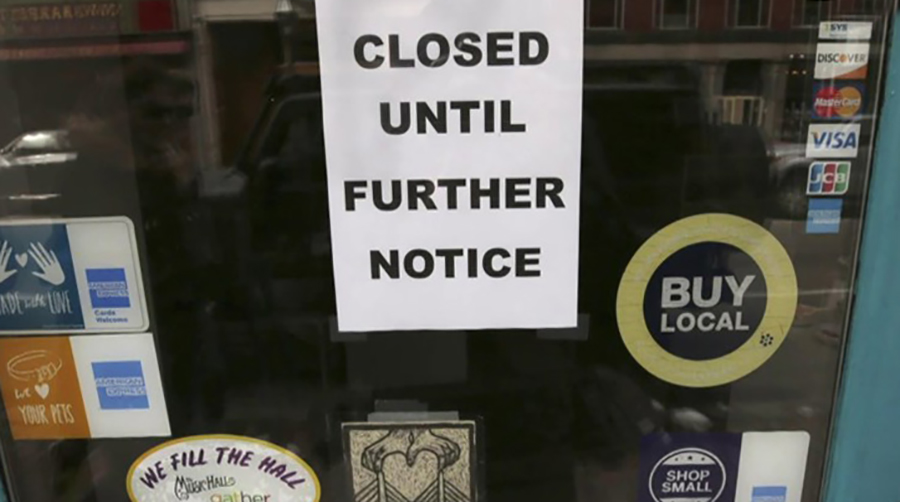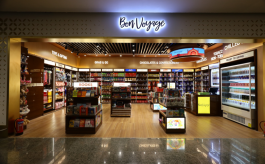20-25% of retailers will not be able to survive even the next three months of closures
By Retail4Growth Team | April 21, 2020
Wealthiest countries are predicting 30-40% bankruptcies & survival is the critical issue for all of retail, particularly small businesses and non-essential retailers, as per RAI survey

With an aim to bring to light, retail issues pertinent to the current situation at a world scale, Retailers Association of India (RAI) along with Trust for Retailers and Retail Associates of India (TRRAIN) organized a Webinar on ‘Retail 2020: Reset. Recover. Revive’.
Panelists included Christian Verschueren, Director-General, EuroCommerce; Ian McGarrigle, Chairman, World Retail Congress; Matthew R Shay, President and CEO, National Retail Federation; Simon Susman, President, Intercontinental Group of Department Stores.
Key Takeaways were:
Consumer Behaviour Change
- Consumers initially said that they are going to change the way they shopped but not necessarily how much they spend. That’s changed. Now consumers are pulling back in order to save enough to get through this.
- When the crisis hit, there was panic buying right from China, Australia, then Europe, then America which then settled down. Then came the crisis of e-commerce. And now there are different kinds of patterns emerging globally.
- Patterns of shopping will change, conspicuous consumption will disappear, food will remain strong, we will see a customer still nervous in what I call a Jobless world, fewer jobs i.e. less demand. And that’s going to be even more difficult for us to handle.
- More consumers are adopting e-commerce and this change could have lasting effects.
- Consumers are changing and they’ve started to realize the importance of retail.
Effects on Businesses:
- Results from a survey of 1500 Indian retailers indicate that 20-25% of retailers will not be able to survive even the next three months of closures.
- On the non-food side, stores have been closed for over 3 weeks. Wealthiest countries are predicting 30-40% bankruptcies
- 80% department stores across the globe are closed. Creating our own ability to preserve cash is critical.
- Survival is the critical issue for all of retail right now, particularly small businesses and non-essential retailers. And to them, Survival means cash.
- There will be an acceleration in some of the trends in the US—Digital, personalization, fulfilment, delivery.
- Across the globe, Emphasis on cash and rethinking businesses.
- When the stores do open up the systems and processes that brands put in place with various degrees of success is what will remain in the minds of consumers
- The retailers in the middle has the biggest problem at hand, because the smaller retailers can potentially expect help from the government and the larger corporations can take care of themselves. Those in the middle are stuck with no backing or ability to help themselves.
- There is going to be a huge rise in demand immediately after the lockdown is lifted due to consumers wanting to reconnect with their family and friends. Case in point, China.
Guidelines for Retailers
- Communicating is extremely crucial.
- This is also the time that brands can really build value for themselves. For instance, brands helping the community by making asks or some other assistance will go a long way in creating value in the minds of consumers
- The real opportunity is in the power of the brand. Those of us who have invested in our brand. The ability of people to trust brands is what will change things.
- Keeping the supply chain going is extremely important.
Government Support:
- What America did for its retailers: Payments to consumers and unemployment support through existing system. Support to small businesses.
- The way that the developed economies and the larger economies have treated in terms of relief packages and fiscal policies with retailers and SMEs is different from emerging markets like India and South Africa.
- Defining the term ‘essential’ is extremely crucial. Restricting it to just food and pharmaceutical products is not the right way to go about it.
- Most retail bodies across the globe are asking governments for a gradual opening up of non-food essential stores.
- Everyone is going to pull back from their consumption. And for those at the low-income level we will have to create a kind of demand to get the economy moving. It’s going to be about stimulus. Stimulating the economy is going to be in the next phase. Right now it’s about relief.








